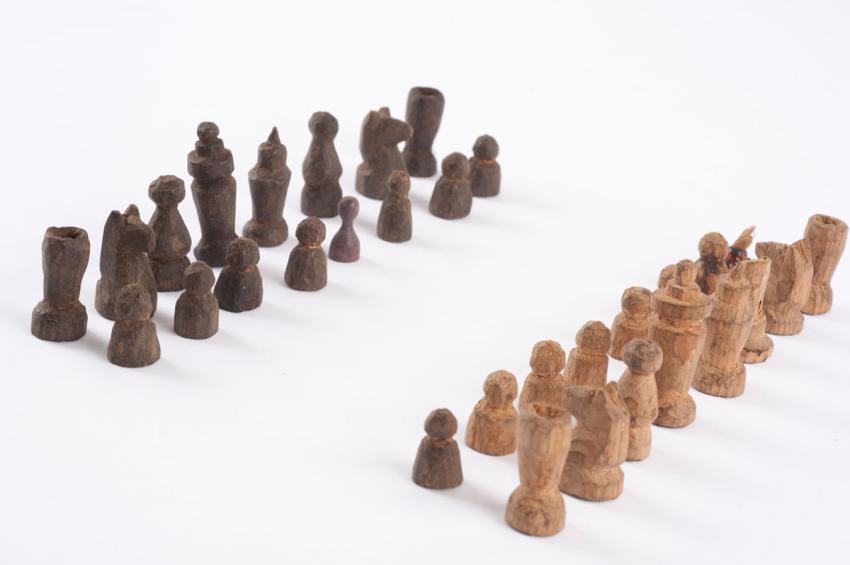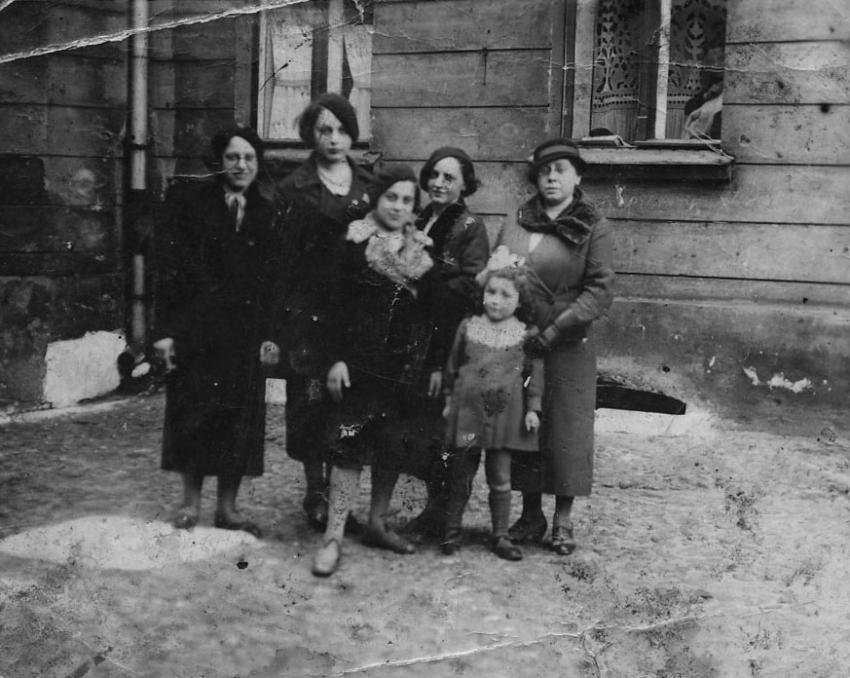"…When we came out… they immediately separated the men and the women" relates Liliana in her testimony. "….I couldn't even say goodbye to my father or kiss him… I was with my two sisters and she [Rachel] held the baby… and I remember that Jews… they said to give the babies to the elderly… and I had a bad feeling, how could she hand over the baby… but so many repeated "baby to the elderly, baby to the elderly" that she tried to give the baby to some woman who didn't want to take the baby… she must have known that babies meant death… In the end she [Rachel] made a gesture of despair with her hands and took the baby and went and joined the older women… I debated whether to go with her but someone held me back… I wanted to help her, but on the other hand, I had another sister… I didn't want her to go alone with the baby."
Shimon, his daughter Rachel and her baby were sent to the gas chambers. Malka and Liliana were sent to forced labor. They were transferred to the Gross Rosen camp where they worked in a munitions factory. From there they were sent to the Halberstadt labor camp in the Sudetenland where they were eventually liberated by Red Army troops.
Soon after liberation the sisters, sole survivors of their family, went their different ways. Liliana, who embraced Communism, was sent by the Soviet authorities to Lvov. She was instructed to write a farewell letter to Malka that was dictated to her, and to leave without parting from her sister. Thus she undertook the long and difficult journey beset by deep yearning.
Malka returned to Lodz. Next to the family home at 27 Cranach St. she found assorted objects in a rubbish heap, among them family photographs. On the sidewalk, she saw chess pieces scattered and she collected them. She recognized them as chess pieces made in the ghetto that had belonged to the neighbors' children, who would play chess and jacks on the doorstep. The fate of the children is not known, but it is unlikely that they survived the war.
A year after the sisters parted, Liliana made her way back to Lodz. After an emotional reunion, she began to rebuild her life. Malka immigrated to Israel in 1957, while Liliana only managed to leave Poland in 1968 with her husband. She brought the chess pieces with her when she came to Israel.
Liliana kept the chess pieces for many years in memory of the neighbor's children, but fearing that they would get lost, she finally gave them to Yad Vashem, a memorial to the clever children that she saw in her mind's eye through the years.
Yad Vashem Artifacts Collection
Donated by Liliana Klieger, Israel










